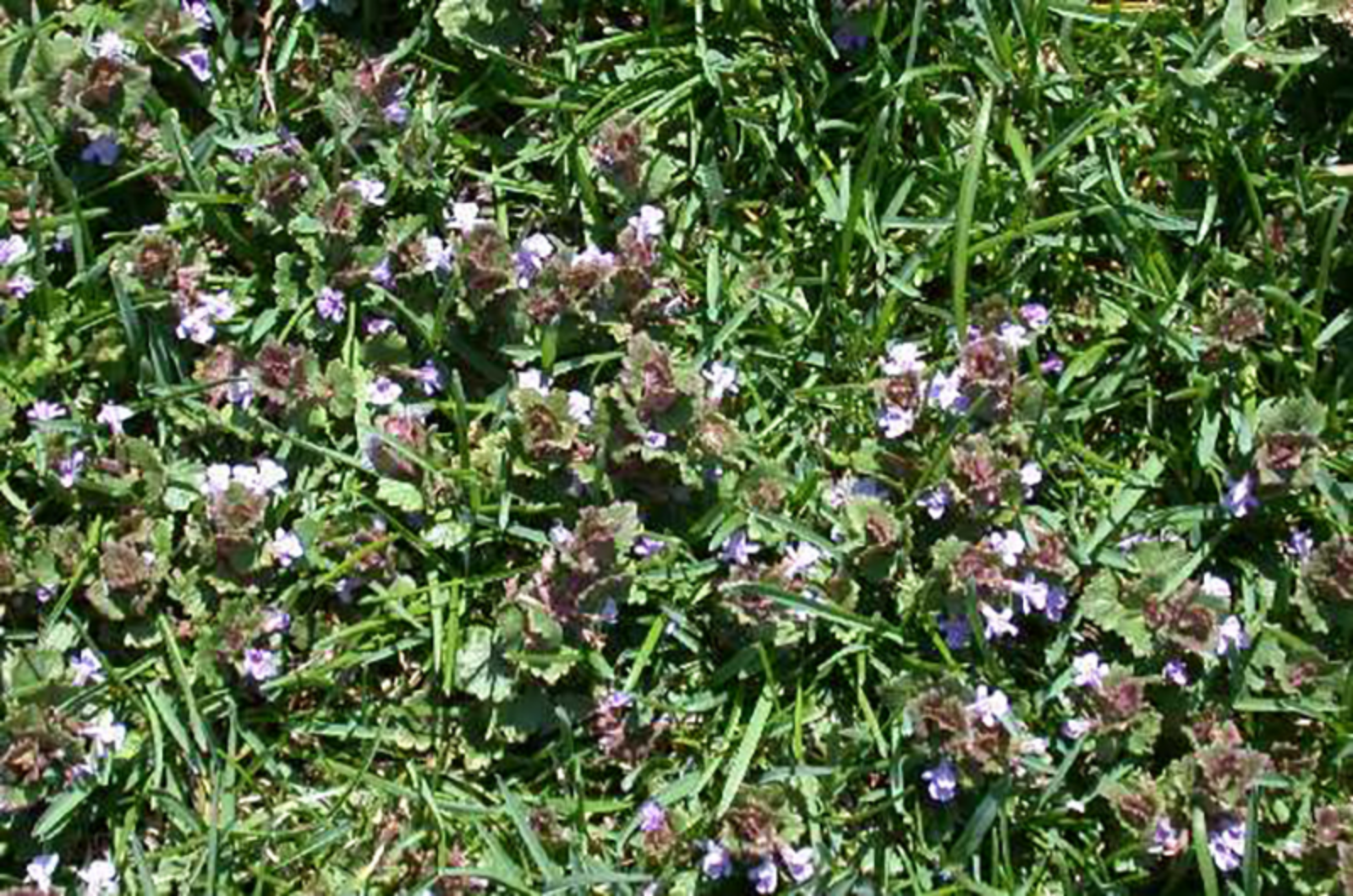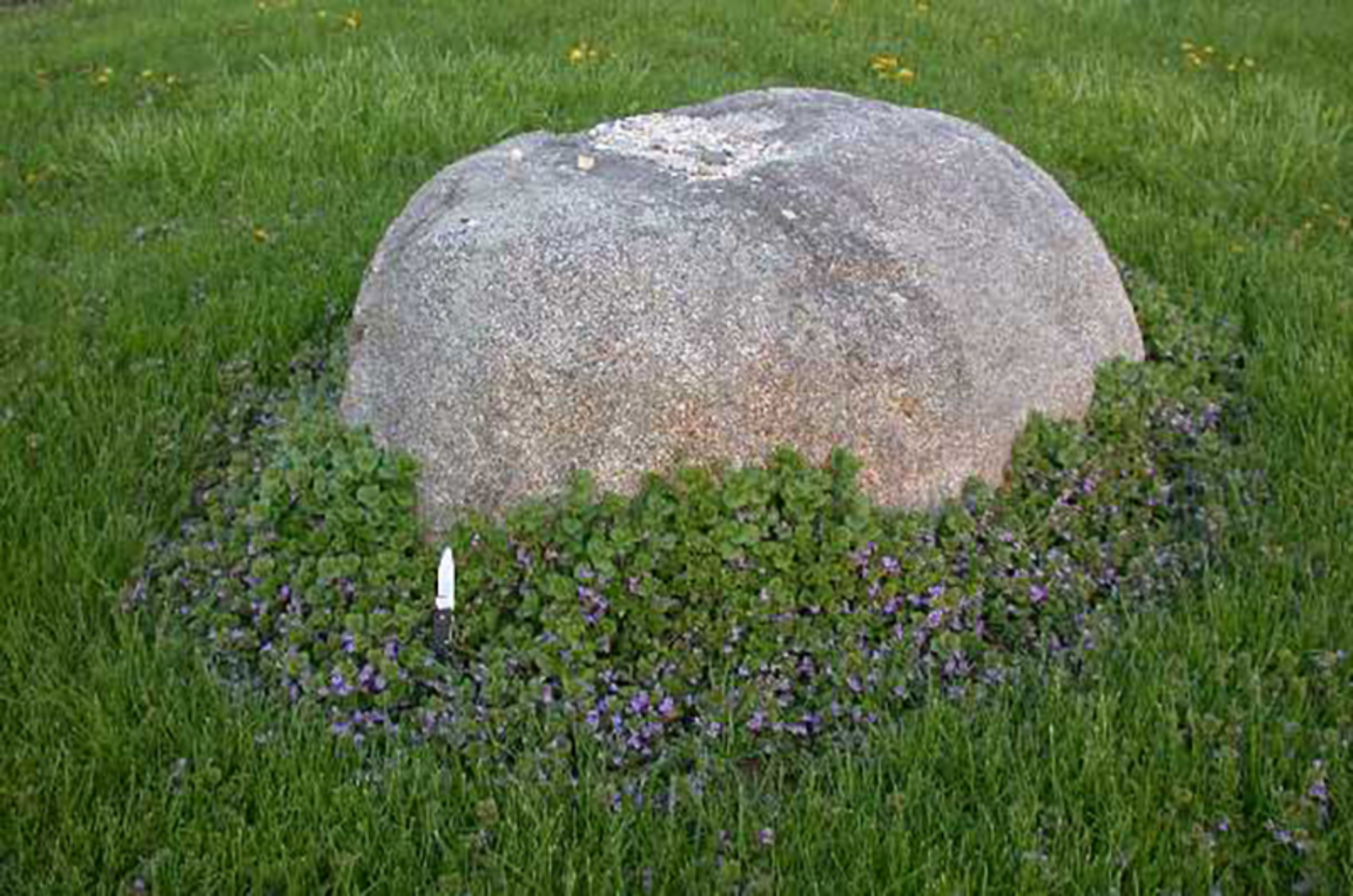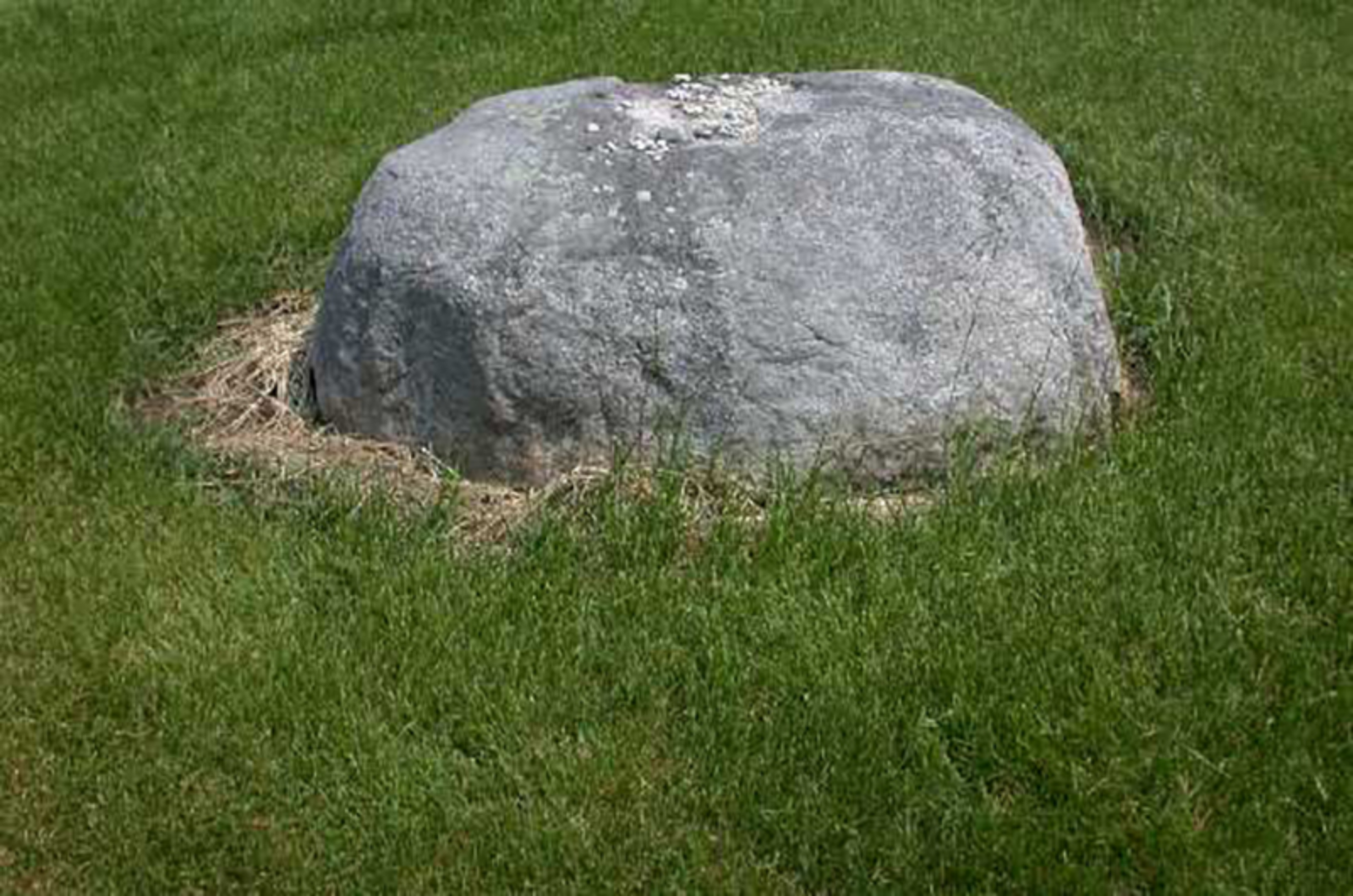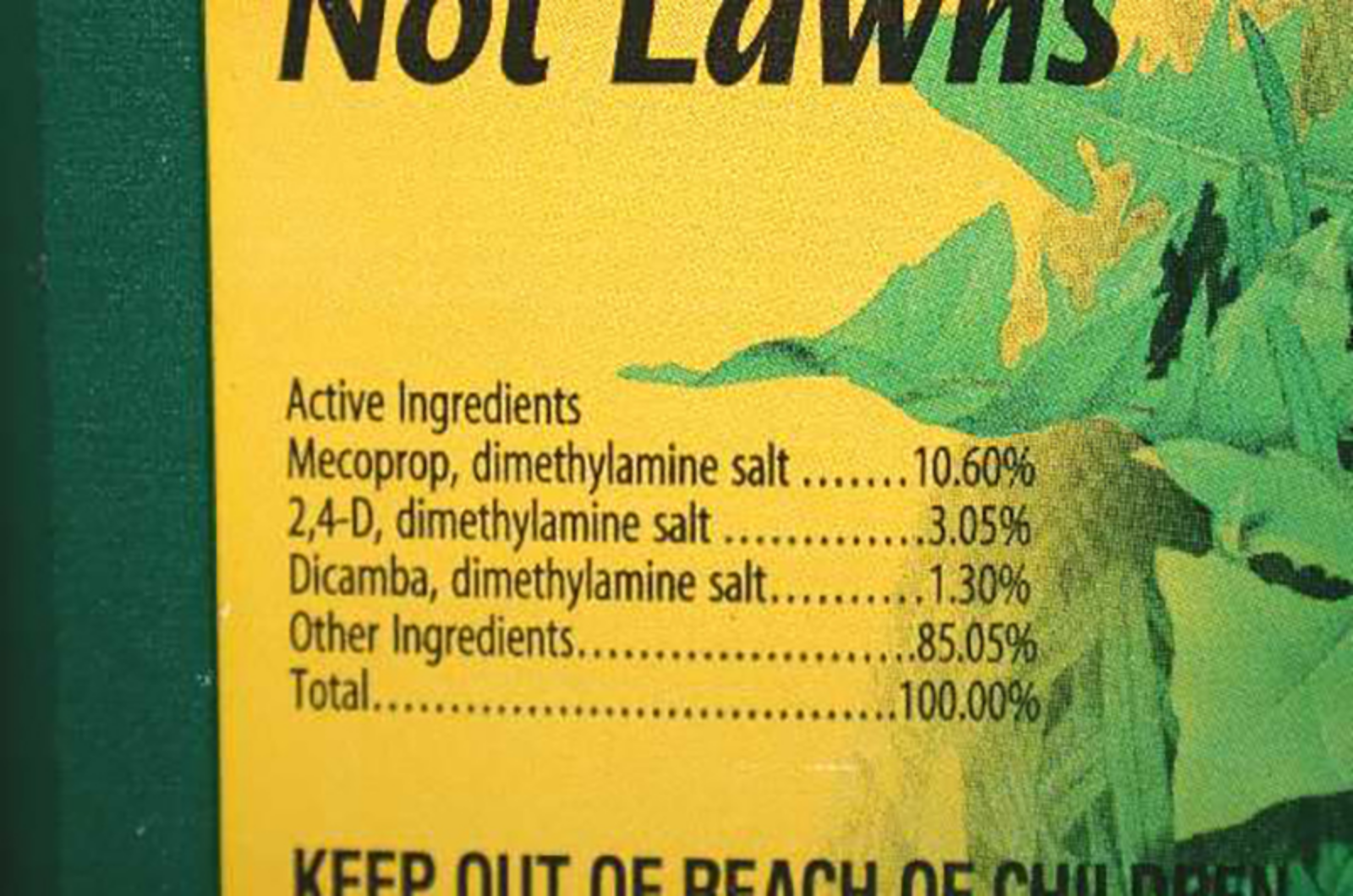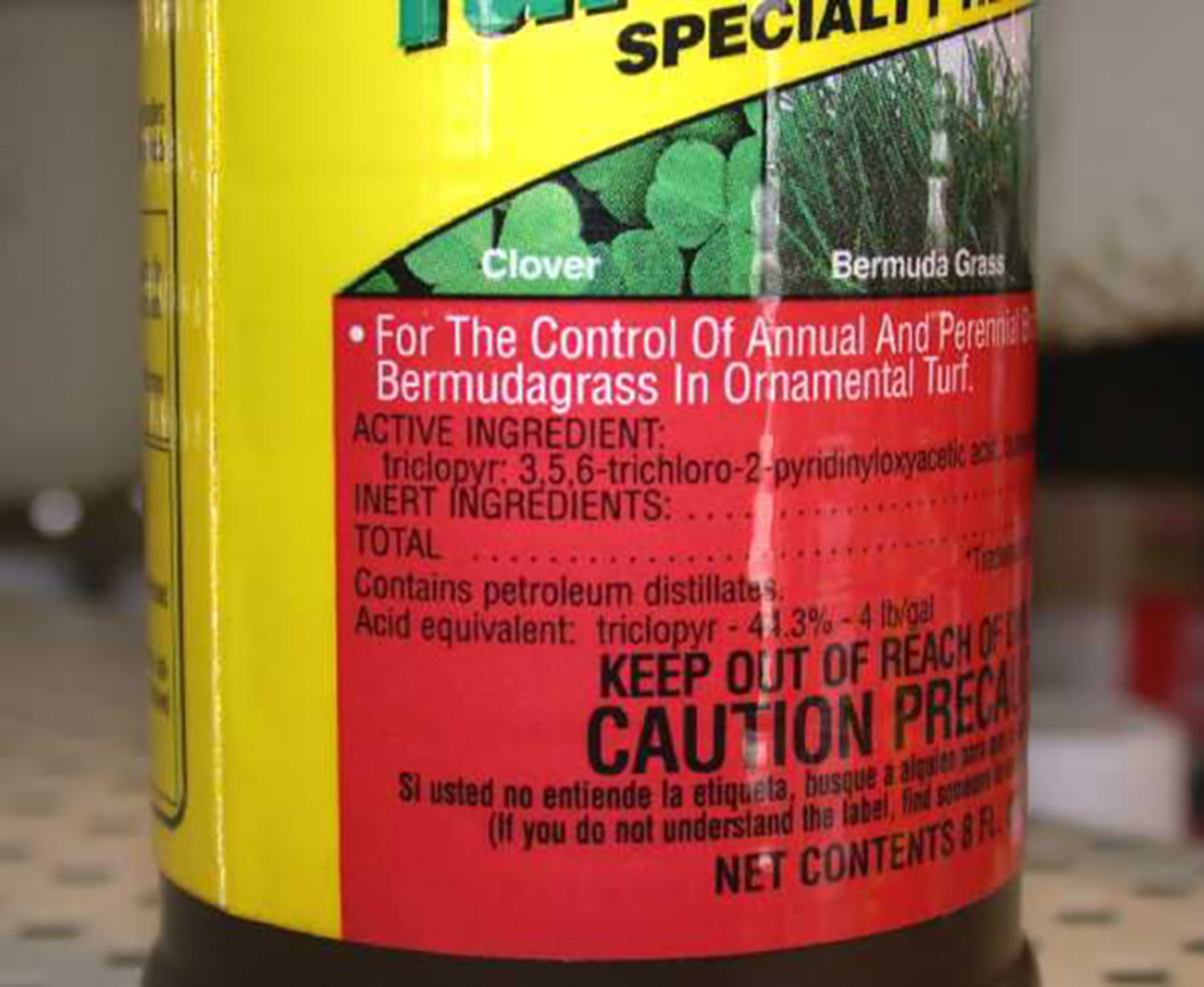Picture of the Week
May 17, 2021
Controlling Ground Ivy (Creeping Charlie)???
Glenn Hardebeck, Turfgrass Research Agronomist, Purdue University
Ground Ivy is often lumped into the “Hard to Control Weed” category with other weeds such as wild violet. While controlling ground ivy is difficult, it is at least one rung on the ladder below that of controlling wild violet. Controlling wild violet is difficult due to its extensive underground root system, which enables violet to spread by using rhizomes (thick underground spreading roots). Ground ivy has no such underground root system. Instead, ground ivy spreads on top of the ground by using stolons or runners much like that of strawberries. What this means in terms of control is that violets can regrow from the extensive root system while ground ivy regrows from uncontrolled plants on the surface.
Click image to enlarge
Control: Control begins by improving the turfgrass stand through sound fertility practices and maintaining the lawn at a reasonable mowing height (2.5” to 3.5”). https://www.extension.purdue.edu/extmedia/AY/AY-22-W.pdf. Space that is unoccupied by turf will be occupied by weeds. Broadleaf weed controls containing triclopyr by itself or combination products of 2,4-D, MCPP, and dicamba can be used effectively to reduce ground ivy populations. Spray applications are better than dry spreadable materials when applied at the correct rate and uniformly. Multiple applications will likely be needed so that those ivy plants that escape the first application cannot spread back into the lawn.
Rotate and Repeat treatments: Apply either triclopyr or the combination product in the spring at or just after the ground ivy flowers. In mid to late September, rotate to the other chemical and reapply that same chemical again 3-4 weeks later in October. The cooler weather may reduce the short-term visual effect but the long-term control is actually better in the fall. To avoid future ground ivy problems, it is important to maintain a competitive turf and eliminate any encroaching ivy plants early by spot spraying.


